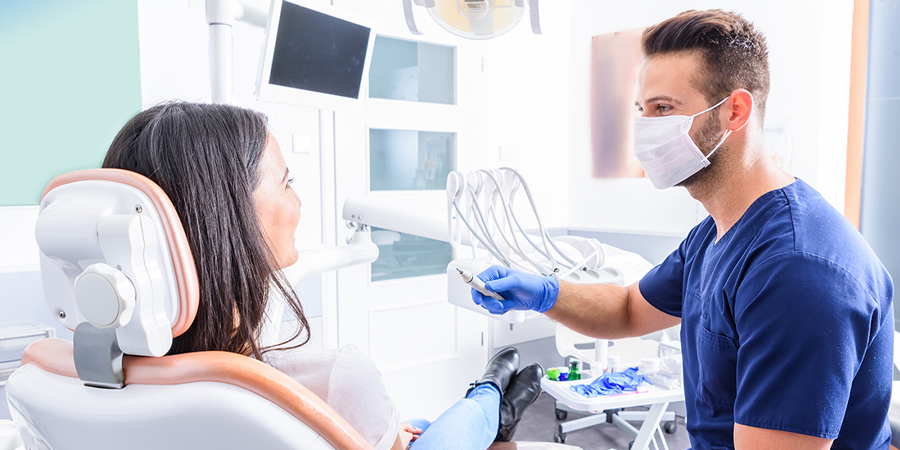
When was the last time you thought about the link between long-term dental issues and emergency care?
Most people don’t connect the dots until they’re in pain, rushing to the dentist with a swollen jaw or a throbbing toothache. Chronic dental conditions, like gum disease or severe decay, may simmer quietly for years, but when left unchecked, they can lead to sudden, painful emergencies that disrupt your life.
Ignoring these conditions isn’t just inconvenient—it’s risky for your health and wallet.
Understanding how chronic dental problems develop and escalate can help you stay ahead of emergencies. By addressing issues early, you can avoid late-night visits to the dentist or, worse, losing a tooth.
In this blog, we’ll explore the connection between chronic dental conditions and emergency care, shedding light on what triggers crises and how to prevent them. Whether you’re dealing with ongoing issues or just looking to stay informed, this guide will give you the tools to protect your smile and maintain lasting oral health.
Understanding Chronic Dental Conditions
Chronic dental conditions develop gradually but can have a profound impact on your oral health if left unchecked. Some common examples include periodontal disease, bruxism (teeth grinding), temporomandibular joint (TMJ) disorders, and severe tooth decay. These conditions are often sneaky, progressing over time without obvious pain until they reach a critical point. While they may seem manageable at first, ignoring them can lead to long-term consequences that affect both your smile and your overall well-being.
- Periodontal disease: Chronic gum infections can damage soft tissue and bone, leading to tooth mobility and loss.
- Bruxism: Teeth grinding or jaw clenching, often triggered by stress, can cause severe wear, fractures, or even tooth loss.
- TMJ disorders: Issues with the jaw joint can cause pain, headaches, and difficulty chewing.
- Severe tooth decay: Unchecked cavities can lead to infections and abscesses, sometimes causing tooth loss.
- Over time, untreated conditions can lead to worsening symptoms, affecting your ability to eat, speak, and maintain a healthy smile.
Recognizing the early signs of these conditions is crucial to preventing future emergencies. The connection between chronic dental conditions and emergency dental care is clear—without attention, seemingly minor issues can escalate into costly and painful crises.
When Chronic Conditions Lead to Emergencies
Ignoring chronic dental conditions often leads to urgent dental emergencies, requiring immediate attention. Conditions like gum disease or untreated cavities can silently evolve into serious issues, including abscesses, fractures, and severe pain. What might have started as a small problem can quickly snowball, turning into a full-blown emergency that disrupts your life.
- Abscesses: A bacterial infection from untreated cavities or gum disease can lead to a painful abscess that requires immediate drainage and antibiotic treatment.
- Fractures: Teeth weakened by decay or bruxism can suddenly fracture or chip, causing sharp pain and further damage.
- Severe pain: Infections or nerve damage from untreated dental issues can trigger excruciating pain, often making it impossible to eat, sleep, or focus on daily tasks.
- Warning signs to watch for include sudden swelling, sharp pain, or difficulty chewing or speaking. These could indicate that a dental condition has become a true emergency.
- Studies show that a significant percentage of emergency dental visits stem from neglected chronic conditions, emphasizing the importance of routine care.
If you’re experiencing any of these symptoms, don’t wait. Seek help from a professional immediately. Emergency dentist in Moundridge can offer swift care to mitigate further damage and ease your discomfort.
The Hidden Costs of Ignoring Chronic Conditions
The financial and emotional toll of neglecting chronic dental conditions can be significant. Dental emergencies are often expensive, especially when they result from years of ignored issues. It’s easy to delay treatment for minor discomforts, but when a chronic condition becomes an emergency, the costs skyrocket. These costs go beyond money and can affect your mental and physical health as well.
- Financial impact: Emergency procedures like root canals, extractions, or even hospital visits can quickly drain your wallet. Regular checkups and preventative care are far less expensive than dealing with an emergency.
- Emotional toll: Chronic pain and dental anxiety can cause significant stress. The fear of unexpected dental emergencies can affect your mental well-being, leading to anxiety and avoidance of necessary treatments.
- Tooth loss: Delayed care increases the risk of tooth loss, which often requires costly and time-consuming restorative treatments like implants or dentures.
- Systemic health issues: Chronic dental problems don’t just affect your mouth; they can contribute to conditions like diabetes, heart disease, and even stroke. Poor oral health has been linked to worsened systemic conditions, creating a dangerous cycle of illness.
- Addressing the connection between chronic dental conditions and emergency dental care early on can prevent these long-term consequences.
The Role of Emergency Dental Care
When chronic dental conditions flare up, timely emergency dental care is essential. Emergency dentists are trained to handle the complications that arise from long-term dental issues, helping you manage pain and prevent further damage.
- Handling complications: Emergency services address acute complications like abscesses, fractures, or severe tooth pain, often requiring immediate intervention.
- Specialized care: For conditions like TMJ disorders or severe gum disease, finding a dentist with experience in treating complex dental problems is crucial.
- Advanced treatments: From sedation to specialized procedures, emergency care ensures that patients receive the necessary treatment to stabilize their condition and alleviate discomfort.
- Importance of timely care: The sooner you address a dental emergency, the less likely you are to experience long-term damage or expensive restorative procedures.
Preventing Dental Emergencies Through Proactive Care
Taking proactive steps to manage your oral health can significantly reduce your chances of dental emergencies down the line. Routine checkups, good at-home care, and lifestyle adjustments all play a vital role in preventing complications from chronic conditions.
- Routine checkups: Regular dental visits help detect early signs of issues like cavities, gum disease, or tooth wear. Catching problems early allows for simpler, more affordable treatments before they become emergencies.
- Home care habits: Brushing twice a day, flossing daily, and using mouthwash can reduce the risk of tooth decay and gum disease. Using a mouthguard at night can also help protect your teeth from bruxism.
- Lifestyle changes: Limiting sugar intake, avoiding tobacco, and managing stress can reduce the risk of conditions like periodontal disease and bruxism.
- Healthy diet: Eating a balanced diet rich in vitamins and minerals, especially calcium and vitamin D, helps keep teeth and gums strong and healthy.
Taking care of chronic dental conditions early on is the best way to avoid expensive and painful emergencies. By staying proactive with regular checkups and proper at-home care, you can prevent the escalation of minor issues into critical situations. Don’t wait for the pain to get worse—address dental problems before they disrupt your life. If you’re struggling with a chronic issue, seek help from an emergency dentist. Your teeth—and your health—deserve the best care!



